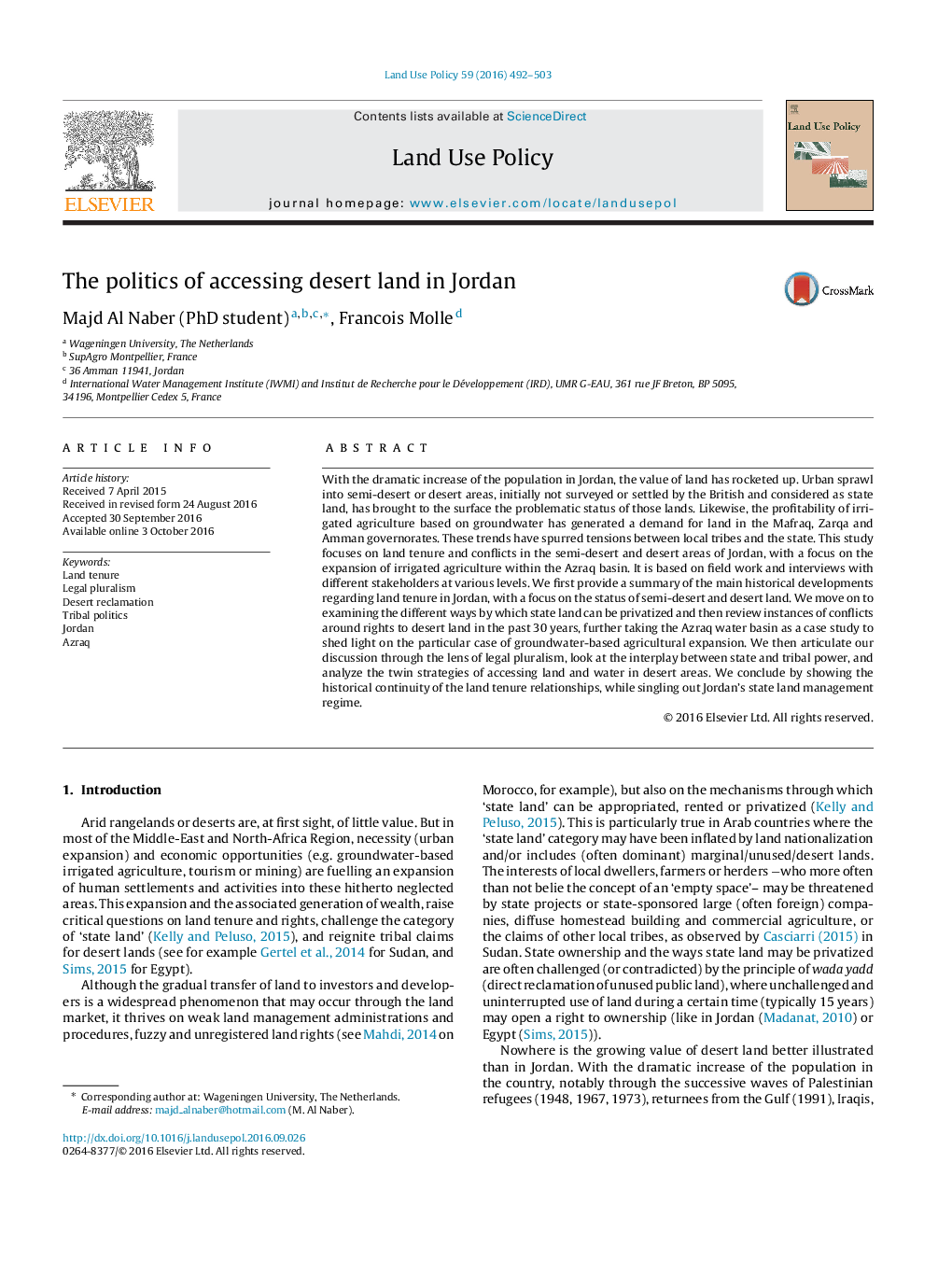| کد مقاله | کد نشریه | سال انتشار | مقاله انگلیسی | نسخه تمام متن |
|---|---|---|---|---|
| 6461593 | 1421824 | 2016 | 12 صفحه PDF | دانلود رایگان |
- Land settlement in Jordan during British Mandate left 75% of the land as state land.
- Desert land can be valued through groundwater-based agriculture.
- Claiming ownership to desert land is wealth-generating.
- Legal pluralism well describes claims to desert land.
- Mediating access to land is an attribute of state power and of political stability.
With the dramatic increase of the population in Jordan, the value of land has rocketed up. Urban sprawl into semi-desert or desert areas, initially not surveyed or settled by the British and considered as state land, has brought to the surface the problematic status of those lands. Likewise, the profitability of irrigated agriculture based on groundwater has generated a demand for land in the Mafraq, Zarqa and Amman governorates. These trends have spurred tensions between local tribes and the state. This study focuses on land tenure and conflicts in the semi-desert and desert areas of Jordan, with a focus on the expansion of irrigated agriculture within the Azraq basin. It is based on field work and interviews with different stakeholders at various levels. We first provide a summary of the main historical developments regarding land tenure in Jordan, with a focus on the status of semi-desert and desert land. We move on to examining the different ways by which state land can be privatized and then review instances of conflicts around rights to desert land in the past 30 years, further taking the Azraq water basin as a case study to shed light on the particular case of groundwater-based agricultural expansion. We then articulate our discussion through the lens of legal pluralism, look at the interplay between state and tribal power, and analyze the twin strategies of accessing land and water in desert areas. We conclude by showing the historical continuity of the land tenure relationships, while singling out Jordan's state land management regime.
Journal: Land Use Policy - Volume 59, 31 December 2016, Pages 492-503
